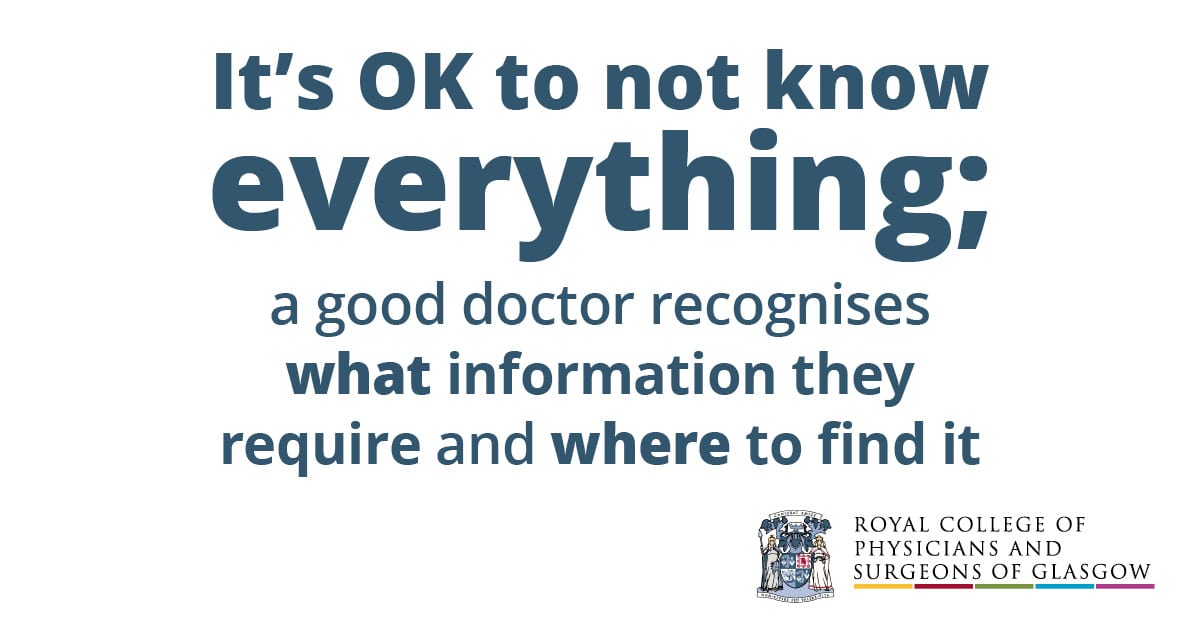Top Tips For New Doctors – Dr Gareth May
24 Jun 2020
Today’s Top Tips For New Doctors comes from Dr Gareth May, FY2 in the Neurosurgey Institute, Glasgow.

Wellbeing Tips / It’s OK
Today’s Top Tips For New Doctors comes from Dr Gareth May, FY2 in the Neurosurgey Institute, Glasgow.
It’s OK to prioritise yourself; medicine is a job, a stressful one at that, but how many occupations aren’t? Look after yourself, know when you are needing some TLC. Those who do not recognise the limitations of their energy, empathy, and decision making capabilities overdo themselves and make mistakes which keeps the stress cycle in motion. Breathe.
It’s OK to be nervous – in fact, it’s strange if you aren’t. Nerves focus your mind for the first while. They usually dull with experience. You’ll be surprised as your capability for making more complex decisions matures over a matter of weeks to months.
It’s OK to feel out of your depth; a good doctor recognises when they need some senior help and does something about it i.e. get the help and identify learning needs.
It’s OK to not know everything; a good doctor recognises what information they require and where to find it. Familiarise yourself with local guidelines, referral pathways and treatment algorithms.
It’s OK to turn to others for help and advice; pharmacists, nurses, advanced practitioners, physiotherapists, porters, occupational therapists, SALT etc. They all contribute massively to a patient’s admission. They also happen to be experts in their field. You’d be silly for not taking on board their concerns/advice.
It’s OK to feel frustrated with the job; blowing off steam (in a professional manner that does not violate patient confidentiality) is what doctors messes are for. Apart from instilling camraderie, they help mistakes to be shared and learnt in a supportive atmosphere.
It’s OK to want better for your patients. If you are unsure about why a decision has been made, ask. If you see an area for improvement, improve. If you see an area of concern, raise concerns.
It’s OK to not be OK. We are not superheroes. We all have the same needs as everyone else. If things are getting you down, the first step is telling someone. It can be anyone.
Tips for Doing a Good Job
Know your patients; everyone prefers to work with an FY1 who knows their patients inside out. By that we mean investigations, social history, follow-up, family concerns etc; knowing which scorpion venom causes pancreatitis is totally irrelevant at this stage.
The social history of a patient is crucial; unless you want to treat disease all your career, get to know your patient, the more you do, the more holistic your care will be.
Be prepared; comfy shoes, working stethoscope, black pens, water bottle, re-usable coffee cup, certain apps (BNF, Resus council, GGC Medicines, Scottish Palliative Care, MDCalc, Antimicrobial companion).
Be organised; make a list of all the jobs generated during the ward round and course of the day. Prioritise the ones which need done ASAP, the ones that need done before lunch, and the ones which can wait til late.
Be honest; with yourself, with your colleagues and with your patients. honesty allows you to recognise and learn from your mistakes, experience is learning from your mistakes.
Be reliable; being dependable to get a job done, no matter how trivial it may seem, makes a huge difference. You need to be trusted by those around you. Everyone who works in a ward is looking for the same goal.
Be intuitive; the more you ask the more you will learn.
Be receptive to others concerns; gut feelings and end-of-bed-ometers come with experience, often more than you have been alive. Listen and act on these concerns.
Be clear; document all decisions legibly and clearly, use the SBAR tool for all verbal and written handovers.
Find out more top tips on Friday 26 June.
Read our previous tips:
Category: Engagement
Latest news and statements
Key priority areas
Topics
- Workforce
- Wellbeing
- Equality, Diversity and Inclusion
- Climate Change
- Health Inequalities
- College
- Obesity
- COVID-19
Archive
Key links
Tweets by @rcpsglasgow